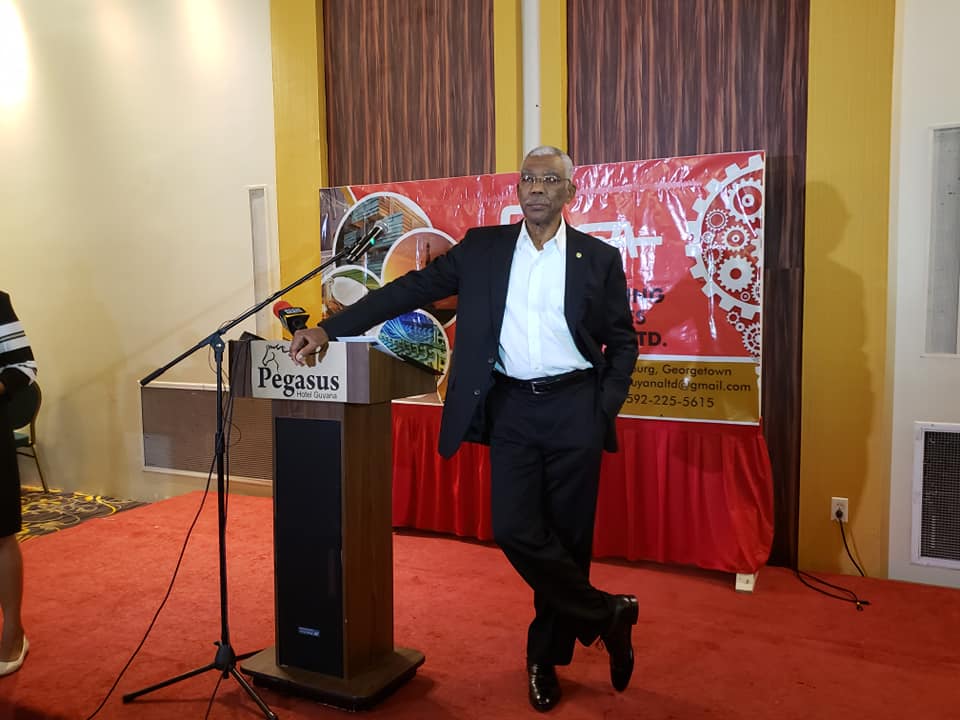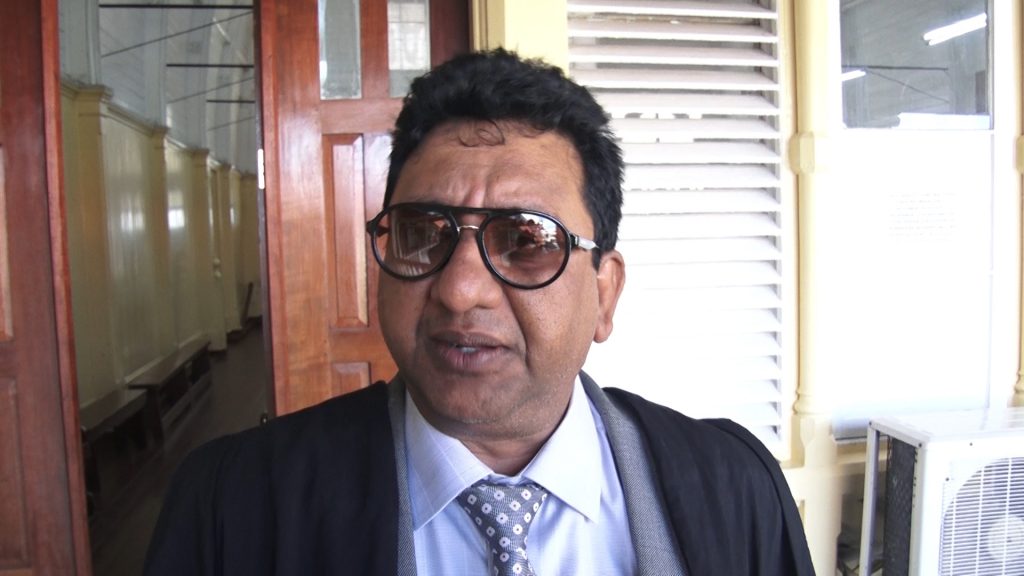
Chief Justice (ag) Roxane George-Wiltshire will on October 16, 2019 rule in the case brought before her by former Attorney General Anil Nandlall in which he seeks an order compelling the President and Cabinet to resign.
The Government, in the person of the Attorney General Basil Williams, has argued that the case is a wanton abuse of the court system because the country’s highest and last court of appeal – the Caribbean Court of Justice (CCJ) – was asked to make such an order but did not.
So, for a lower court, namely the Guyana High Court, to grant the order sought by Mr Nandlall would be to undo what the CCJ has done, the Attorney General argued through his attorney Nigel Hawke, the country’s Solicitor General.
The CCJ on June 18 had ruled that the December 21 No Confidence motion was validly passed, triggering the consequential constitutional provisions. Because of that ruling, in the absence of a Parliamentary vote extending the date, elections should have been held on September 18. That was a conclusion the Chief Justice herself had reached.
While the CCJ did not issue coercive orders, such as dictating a date for elections or ordering the Cabinet to resign, the Court stated that the particular provisions on the passage of a No Confidence motion “require no gloss on the part of the Court in order to render them intelligible and workable.”
“Their meaning is clear and it is the responsibility of constitutional actors in Guyana to honour them,” the Court had stated on July 12 in highlighting the way forward after its previous judgement.
“Upon the passage of a vote of no confidence, the Article (of the Constitution) requires the resignation of the Cabinet including the President.”

In arguments before the Chief Justice Friday, Attorney Kamal Ramkarran, representing former Attorney General Nandlall, argued that the Cabinet has not resigned and so the Government continues to violate the constitution.
He argued that the CCJ, in not making clear orders, allowed the constitutional actors an opportunity to act with integrity and comply with the Constitution but he said the government has failed to do so in continuing to hold Cabinet meetings.
Ramkarran argued that the CCJ omitted to make an order mandating the Cabinet to resign.
In these circumstances, he said the court has a duty to exercise supervisory jurisdiction and ensure that the law is obeyed.
The Chief Justice retorted that she has to know her place, raising the question of how she, sitting in a lower court, could grant an order mandating the Cabinet to resign when the CCJ did not do so even though it was specifically asked to.

She said the lower court must not do anything that could be seen to be usurping or saying anything that is contradictory of the CCJ ruling.
“This court might have to be bound (by the CCJ ruling),” she stated.
Ramkarran argued that “Cabinet has clear and unambiguous duty to obey law.”
However, he told the court that the Cabinet continues to exist and exercise all of its functions and duties even in the face of the CCJ’s determination that the Government is in caretaker or interim mode since the passage of the No Confidence motion.
He reasoned that the understanding must be that the Government is “limited” and assumes caretaker status because on the No-Confidence motion there is no Cabinet.
Attorney Hawke argued that the applicant, Anil Nandlall, was one of the lawyers representing the Opposition Leader in the No Confidence cases before the CCJ, and all the lawyers were asked to make submissions on what the consequential orders should be after the June 18 ruling.
Hawke said one of the fundamental planks of the arguments was that the Cabinet and President resign and immediately vacate office but the court did not so rule, but envisaged that the tenue of the Government and Cabinet would continue, albeit “on a different footing.”
As such, he said Mr Nandlall was asking the High Court to review the final decision of the CCJ.
Hawke said that to do so would be to turn the “hierarchal” structure of court upside down.
He said if the appellant felt that the CCJ had made an omission it should have sought clarification from the CCJ instead but he reiterated that the CCJ received all of the submissions, and did not accede to the request for an order mandating the Cabinet and President to resign.











